In the run-up to the general election on 8 February, we interview the health spokespeople of the political parties about their priorities for the health service
Outgoing Minister for Health says progress will not occur without engagement with doctors
Paul Mulholland
Speaking exclusively to the Medical Independent (MI), the outgoing Minister for Health and Wicklow Fine Gael candidate Simon Harris rejected the charge that he has not engaged sufficiently with doctors in his time in office.
Minister Harris pointed to the GP deal reached with the IMO last year as evidence of his commitment to negotiating with medical professionals.
“I want to be very, very clear with GPs — we have a lot more I want to talk about. If I am Minister for Health and my party is back in Government, we’ll be sitting down with GP organisations again this summer to talk about a new GP contract,” according to the Minister.
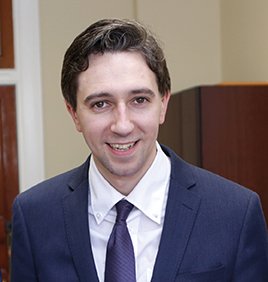
“Before we got into the new GP contract, I think it was important to look at how we moved beyond FEMPI. Now that we are there, I want to sit down with them, talk about a new GP contract, and I want to particularly talk to them about the out-of-hours GP service, because I am hearing from a lot of them that they need to be supported if this… is going to remain sustainable.”
Minister Harris added that the planned extension of free GP care to under-18s will be achieved through a process of negotiation. In January, the IMO said no agreement had been reached on the eligibility extension to all children under 13 prior to its announcement.
“We have no intention of just introducing free GP care for under-18s in the morning,” he said.
“We are talking about doing this over a five-year period and wanting to engage with them, and wanting to learn lessons from the under-sixes.”
At the IMO AGM in April 2019, the Minister stated his intention to address the consultant recruitment and retention crisis, driven by the new-entrant salary pay cut. However, a lack of engagement led IMO members to vote for industrial action, which was only averted by the announcement of the Sláintecare public-only contracts, and subsequent discussions.
“What I said at the IMO was, this year [2019] we made good progress on some of the issues to do with general practice; now I want to focus on making similar progress with consultants,” the Minister told MI.
“I accept that it took a little bit longer than I would have liked. But it was very important that I made sure that, the public side, the State side if you like, was ready from a policy perspective to engage with those discussions. I got Government approval just before Christmas to offer consultants a much higher rate of pay, one of the highest rates in the OECD, and the highest in the EU, in return for public-only contracts. I had quite a lengthy meeting with both the IMO and the IHCA separately in the last month, and they are both now engaging at official level with my Department to tease through practical issues and then formal negotiations will start post the general election.”
Minister Harris also rejected the accusation that he is ‘hiding’ behind Sláintecare and not addressing the current problems facing the health service, such as chronic emergency department overcrowding and waiting lists.
“That is an accusation made by my political opponents,” the Minister said.
“I think it is simply not true. When you are the Minister for Health, obviously along with dealing with the day-to-day challenges in our health service, you also have to put in place an actual reform plan or we are going to constantly face the same issues, year-in, year-out. If you want to break the cycle of overcrowding, break the cycle of lack of adequate doctor numbers and the likes, you need to have that plan.”
He pointed to recent National Treatment Purchase Fund (NTPF) data showing some reductions in waiting lists as an example of progress being made in the health service, despite the continued need for additional capacity and staff. Responding to criticisms about how waiting lists are validated, Minister Harris stated: “It is important that it is done in a co-ordinated, independent, and patient-friendly and doctor-friendly way and I am satisfied that the NTPF is doing that and that is certainly the feedback I get.”
One difference between Fianna Fáil and Fine Gael is the role of the NTPF. Both parties see a role for the Fund, with Fianna Fáil promising significant additional funding (see Mr Stephen Donnelly interview below). Fine Gael is putting emphasis on changing how the NTPF works, rather than increasing investment.
“I want to reform it and want to use it as an access fund, so I want to see us spend more money in the public health service, investing in opening up more theatres, and if I am returned as Minister for Health and if Fine Gael are back in Government we will amend the rules under which the NTPF operates to allow it to assist in providing diagnostic services in our community,” according to Minister Harris.
“We now have 127 primary care services across the country. We need to have more diagnostic services so people don’t need to go to hospitals to get their x-rays, or their MRIs, or their CAT scans, or their ultrasounds. So I would like to see the NTPF being used as a ring-fenced fund to help access, but not the old NTPF, to be honest, of the Celtic Tiger era.”
In terms of the roll-out of Sláintecare, which many say is too slow, the Minister said the Sláintecare Report called on his office to examine issues such as the removal of private practice from public hospitals. Implementation of this proposal could not take place until this work had been completed, he said.
“And I did have some concerns about the sequencing of free GP care,” according to the Minister.
“Because I felt that whilst I want to create and am passionate about creating a universal healthcare service, you have to make sure the capacity is in place for that service first. ”
MI spoke to the Minister after it was revealed patient advocate Mr Mark Molloy had resigned from the HSE board over the lack of funding for the national maternity strategy. While praising the advocacy of Mr Molloy, and his wife Róisín, the Minister said: “I take the validity of what they are saying, that they want to see more progress on it. We have seen some progress. You know every year when you are going to do a health budget, obviously, there are challenges in trying to get everything done at the speed at which we would like to, but I think the way to do it, and what we did discuss at our meeting is, through Sláintecare now, let’s pick a number of areas where we can look at ring-fenced multi-annual funding. And I have given a commitment that the maternity strategy would be one.”
In its manifesto, Fine Gael promises by 2025 an additional investment of €5 billion per year to resource the health service. The provision of 2,600 extra hospital beds and 4,500 community beds are included under the plan. It also promises to provide 80 additional primary care centres and community diagnostic facilities and the development of three elective hospitals in Dublin, Cork and Galway.
On the continuing upward trend of record numbers of patients waiting on hospital trolleys the Minister said: “I accept that hospital overcrowding is unacceptable, but I also think that patients and doctors think ‘What are you going to do about it?’ The answer to that is really multifaceted but a major part of it is capacity. We’re now putting in the capacity. It can’t come quickly enough, I fully accept that, and we have a fully funded plan to deliver 2,600 hospital beds over the lifetime of the next government — that work is already well underway.”
When asked about his main achievements in office, Minister Harris referred to the repeal of the Eighth Amendment and Sláintecare.
Consultant pay parity ‘extremely urgent’ — Donnelly
CATHERINE REILLY
Under Fianna Fáil’s plans, additional health funding of €2 billion would be provided for new services by year five, health spokesperson and candidate in Wicklow Mr Stephen Donnelly told MI.
In its manifesto, Fianna Fáil says it will open the 2,600 additional hospital beds recommended under the bed capacity review.
Mr Donnelly said the new hospital beds would be “scaled-up over the next five years” (these beds are not included in the €2 billion figure, as they are already in the national development plan, he added).
On where and when these beds would open, Mr Donnelly said “you need to be in Government” to determine this through discussions and planning with the Department of Health and HSE.

The party has committed to ensuring there is an emergency medicine consultant present in emergency departments (EDs) on a 24-hour basis.
Asked if the number of EDs should be reduced nationally, Mr Donnelly said as the health service was in “full-blown crisis”, it was not the right time to talk about reconfiguring EDs.
Does it need to happen down the line?
“Well, let’s see. Certainly, as part of the Sláintecare reconfiguration, the various work that goes on in all hospitals has to be looked at and is being looked at.”
Mr Donnelly said new contracts for consultants should be public-only, but if consultants wanted to do private work in private clinics in their own time, “that is up to them”.
He outlined that pay inequality for consultants appointed post-2012 needed to be addressed with “extreme urgency” and was driving a “chronic shortage” of consultants. The party has committed to hiring 1,000 more consultants in the next five years.
Fianna Fáil also proposes extending free GP care “based on need”. Mr Donnelly considers that GPs have been “treated very badly” by Government.
“The announcement of the under-sixes and then the under-13s happened without any consultation with the GPs and without putting the resources in place that they need to deal with it… In Wicklow, people are now waiting three weeks to see a GP, which has never happened before.”
He said Fianna Fáil will ramp-up funding for GP services to an extra €300 million a year, and deliver a new GP contract.
“In the short term, we have a €50 million minor capital grant programme for access to diagnostics for GPs, and we are saying let us get around the table very quickly and start talking about a new contract… as part of that, we are putting in a very significant allocation for making sure the GPs have the resources they need.”
He continued: “They need to have the resources to do chronic disease management, care of the elderly, respiratory issues in the community — to do that they need access to diagnostics, more administrative support, more practice nurses. In line with Sláintecare we are backing the increase of the rural GP allowance. It is really about phasing — not standing up and announcing what is going to happen to GPs, but to sit down and listen and say look, we are going to have a new GP contract, increase access based on need, that can be financial need and it can be medical need, in terms of chronic disease and so forth. But do it with the GPs and bring new resources to bear as the new contract scales up.”
Mr Donnelly added that the change required to the working life of GPs is “much more profound than just a contract”. He said there are examples of good working relationships between GPs and the hospital system, such as that of Wicklow GPs and Loughlinstown Hospital. However, he also said GPs in Kildare had recently told him that they no longer had access to DEXA scanning in a large Dublin hospital.
He said that when changes are made to HSE community-based teams, this is often poorly communicated to GPs, if at all.
“I have had GPs come to me and say what services are available from the HSE in the area; the system isn’t joined up,” he said.
“The pre-med class in Trinity were asked recently, how many of you want to be GPs, and nobody put their hand up, and nearly all of them said it was their objective to leave the country,” continued Mr Donnelly. “If we want a GP-led primary care model, which is what I want and is essentially what Sláintecare is, then we have to start treating our GPs with an awful lot more respect, so there is a whole cultural change required as well.”
Mr Donnelly was keen to emphasise that Fianna Fáil is advocating an “emergency” response to the deficits in healthcare, in tandem with delivering Sláintecare over the longer term.
He said there was a “suite of shorter-term measures required to deal with the emergency now”. These include lifting the “hiring embargo”, ending new-entrant consultant pay inequality, immediate access to diagnostics, increasing home care hours, and doubling National Treatment Purchase Fund (NTPF) funding to €200 million. Anyone waiting over six months for a procedure will be able to apply to the NTPF.
“The health system at the moment is like a pressure cooker that is about to blow… you have to take the pressure off the system first, you have to let our doctors and nurses breathe.”
There is also “simple stuff that doesn’t cost a penny” that would improve the lives of healthcare professionals. He said an NCHD recently told him he was sleeping on a friend’s couch due to financial issues associated with being put on emergency tax.
“Now, McDonalds can sort out your emergency tax in about 12 hours. So why can’t the HSE?”
Fianna Fáil also proposes establishing an office of budgetary responsibility in the Department of Health.
“We need to send forensic accountants across our health system,” Mr Donnelly added.
Lifting recruitment embargo a priority for Sinn Féin — O’Reilly
David Lynch
Asked what should be the very first action from any new Minister for Health following the forthcoming election, the Sinn Féin health spokesperson is clear.
“The next Government should immediately lift the recruitment embargo,” party spokesperson on health Ms Louise O’Reilly told the Medical Independent (MI). Ms O’Reilly is a candidate for Dublin Fingal.
Ms O’Reilly also believes that it is an imperative for any new Government to get in a room with the medical representative bodies and trade unions as soon as possible.
She said that a new Government should quickly “schedule a meeting with all the unions and workers’ representative bodies in the health service and engage with them in good faith about addressing the issues causing the recruitment and retention crisis across the medical profession, and act immediately to resolve those issues.”
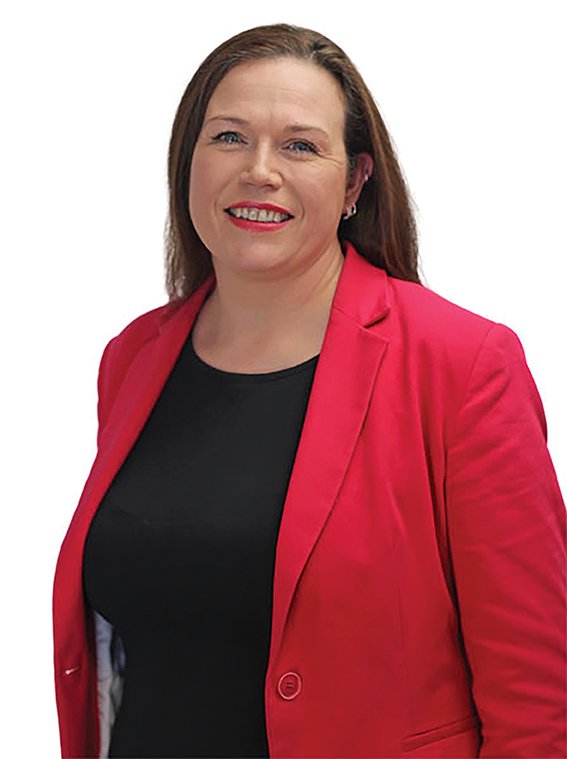
As the recent TV debate between the party health spokespeople on RTÉ’s Claire Byrne Live highlighted, the Sláintecare process looms large over all debates on health.
“I believe the next step in Sláintecare should be a significant investment in primary care, in current and capital spending,” said Ms O’Reilly.
Ms O’Reilly did not provide a figure, but she added that this “significant” investment would help “shift the balance of care to the community to take pressure off acute services, and so that people can access care where they need it and when they need it”.
Like many other opposition TDs, Ms O’Reilly strongly criticised the Sláintecare process so far. “The progress of Sláintecare has been pathetically slow,” she told MI.
“But that was always to be expected from a Fine Gael government who just want to pick and choose what aspects of Sláintecare they want to implement, and more often than not, what aspects they don’t.”
Speaking during the election campaign, Ms O’Reilly was also critical of news of the growing costs of the National Children’s Hospital (NCH).
“The fiasco around the construction of the NCH is of Fine Gael’s own making,” she said.
“The explosion in additional costs and delays is the result of the two-phase plan they signed-off on.
“The risk that this would happen existed from the moment Fine Gael decided [on] this plan, and it was compounded by their light-touch oversight and failure to keep an eye on what was happening.”
In terms of costs, the Sinn Féin election manifesto pledges “an additional €4.5 billion for current and €1.58 billion for capital spending in our health service over and above what has already been committed for the period including for demographics”.
In the manifesto’s section on “investing in health service staff”, the party said that it would hire 1,000 more consultant doctors. The party claims that this would come at a cost of €224 million. The party also said it seeks to recruit 2,500 more nurses and midwives at a cost of €134 million.
Sinn Féin has published a specific mental health manifesto for this election; it includes promises to fully implement A Vision for Change, investment in mental health primary care and a school curriculum for positive mental health.
“Our health service must treat our minds as well as our bodies,” party President Mary Lou McDonald said at the launch of the manifesto.
“No longer should the provision of services be obstructed by backward thinking or by stigma…We can provide decent care and better outcomes for those who suffer with mental health conditions. Ireland can and should be a world leader in mental health provision.”
Sláintecare a ‘red line’ issue for Social Democrats — Shortall
CATHERINE REILLY
The Social Democrats’ health policy is effectively the Sláintecare Report, according to co-leader Ms Róisín Shortall.
Sláintecare’s 10-year plan for reform sets out €3 billion in transitional and legacy funding over six years and guaranteed expansion of health funding by between €380-465 million per year, for expanded entitlements and capacity to deliver universal healthcare.
The Social Democrats see Sláintecare’s implementation as a “red line” issue.
Ms Shortall, a candidate in Dublin North-West, acknowledged that the introduction of universal care can raise GP visitation rates but maintained that this “settles down”.
However, she told MI the current Minister for Health Simon Harris “didn’t take sufficient steps to increase capacity”. She said “an awful lot more” could be done to retain GPs and referred to “issues about work/life balance, pay and accommodation”.
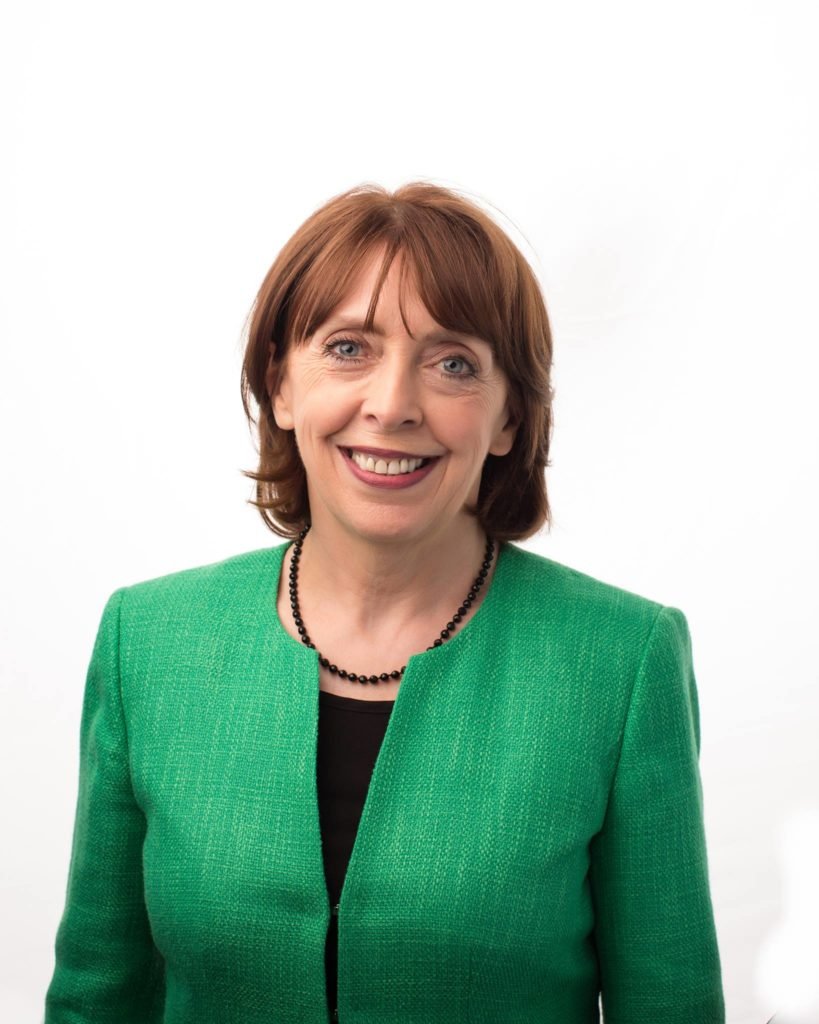
GPs should not be expected to provide their own premises, for example, and they need more flexible working options, such as becoming a salaried GP.
In regard to a proposed salary for the above, Ms Shortall said this would be a matter for negotiation. “I am not going to name a figure, but they need to be properly paid.”
On acute hospitals, Ms Shortall said around 2,500 additional beds are required within the next three-to-four years.
“It is not only about new beds, it is also about freeing-up existing beds, and we know that at any one time there are about 700 beds taken up by people who are ready to be discharged but there aren’t the step-down facilities or homecare services available.”
She said there are currently too many emergency departments but this is politically a “very sensitive issue” due to people’s lack of trust in the Department of Health and HSE to appropriately resource the system to facilitate change.
“Another key element of that is you must have an absolutely reliable ambulance service,” she added.
Ms Shortall said the outgoing Government’s proposed public-only ‘Sláintecare contract’ for consultants is sufficiently attractive.
She said new-entrant consultants have an “opportunity to have a much more lucrative contract and they should certainly be encouraged to take up the new public-only contract, and that encouragement is built into the salary scale”.
But the Fine Gael/Labour Government’s decision to introduce the two-tier pay scale in 2012 was “wrong”, she admitted.
“I was in the Department of Health when that happened. It was an issue that was dealt with solely by the senior minister at the time [Dr James Reilly] and he thought that was quite an achievement… but my responsibility was for primary care, so I didn’t have any role in that.”
Labour plan focuses on investment in community services
David Lynch
Much like Sinn Féin, the Labour Party has told this newspaper that the recruitment and retention of staff across the health system would be its first key priority in any new Government. Despite repeated requests for an interview, health spokesperson Mr Alan Kelly did not respond.
“Labour would end the HSE recruitment embargo,” a party spokesperson told the Medical Independent (MI). The spokesperson said the party believed that a new Government should “employ the necessary staff in acute hospitals and community health services, including a rebalancing of resources to the worst hit Mid-West region”.
The Labour Party said it would also get back to the negotiating table with the representative bodies to “re-negotiate the GP contract and consultant contract”.
“Up to €1 million a day is spent on agency staff costing substantially more than direct hires,” the spokesperson told this newspaper. “This is needed to address waiting lists and emergency department overcrowding to enable the long-term reforms under Sláintecare to then be pursued.”
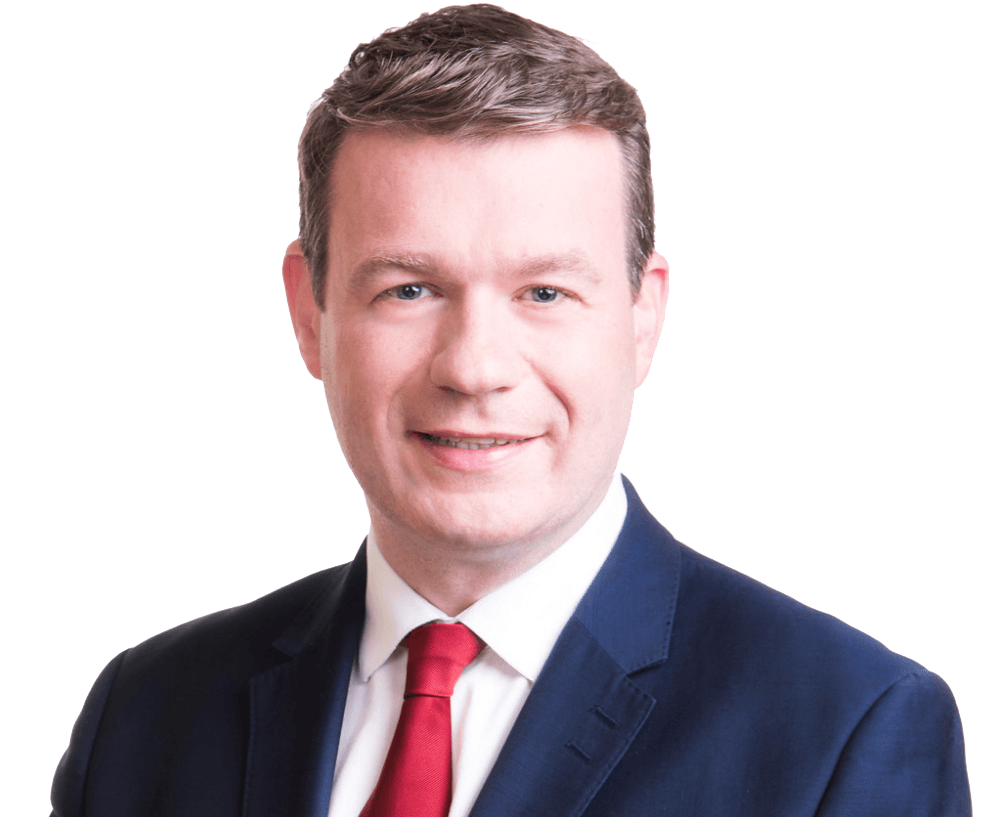
In terms of the all-party 10-year plan for health, the spokesperson said: “The focus and investment must be into primary care that will then divert demand from acute hospitals. Progress so far [on Sláintecare] is very limited and patchy, as Fine Gael have cherry-picked what they agree with, and there is a lack of clarity on the level of future investment.”
The Labour Party election manifesto is promising to spend an additional €5 billion across health over the five years of the new government and to end the recruitment embargo.
According to the manifesto “of the €8 billion we have provided for current spending after social welfare increases, we will allocate €800 million per year or €4 billion over five years for health current spending alongside a further €1 billion for health capital for a total of €5 billion over five years for new measures in our health service.”
During the campaign, Labour health spokesperson Mr Kelly criticised new reports of delays to the National Children’s Hospital (NCH) and described them as “startling”.
“We all want this world-class National Children’s Hospital, but why must it be the world’s most expensive hospital ever built?” asked Mr Kelly.
“This is all down to a lack of political oversight. Fine Gael have overspent massively and failed miserably to monitor rising costs.
“The HSE and the Ministers for Health and Public Expenditure must now give a progress report on the NCH.”
At the beginning of the campaign, Mr Kelly also raised the “recruitment embargo” in the health system.
“Fine Gael has presided over a recruitment ban in our health system for nearly a year now, depriving overcrowded emergency departments of much needed staff who could help ease the pressure.”
Green Party running GP in Meath West and wants ‘pragmatic implementation’ of Sláintecare
CATHERINE REILLY
Navan GP Dr Séamus McMenamin, a Green Party candidate in Meath West, said his party wants “pragmatic implementation” of the Sláintecare Report.
Many GP colleagues support Sláintecare but they are anxious about the ongoing ramifications of recessionary cuts, according to Dr McMenamin.
Green Party health policies have emphasised primary care investment. Dr McMenamin said there is strong evidence, such as from Barbara Starfield, that strengthening primary care leads to reduction in overall health spend.
Dr McMenamin, the party’s health spokesperson, said primary care should be resourced “to do what primary care does — and more of it”.
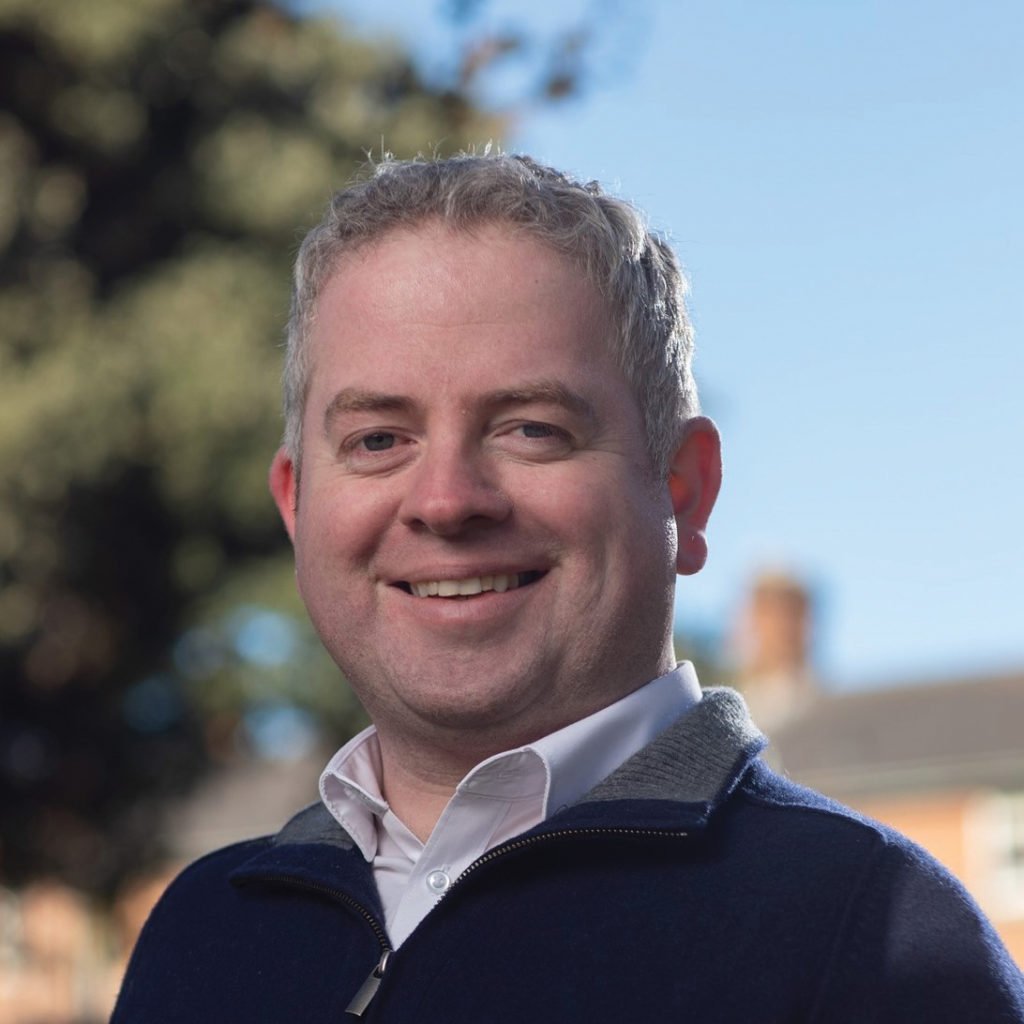
The Green Party advocates a “single-tier health service which is based on need, rather than ability to pay”.
It supports free GP care, once general practice is resourced, and this should be rolled-out by raising income thresholds gradually, outlined Dr McMenamin.
The recent GP agreement between the Government and IMO was welcome, as it offered “some funding back, even though it’s tied to new productivity and new work methods…
“But for us, the issue is there hasn’t been a new contract. We are still working off the GMS contract, which is older than I am.”
On acute services, Dr McMenamin said “we are going to need to increase the number of hospital beds and we do believe that the recruitment in the consultant posts is impaired by the fact there is a pay differential for new consultants…that is something that should be addressed… ”
Having previously called for the HSE’s abolishment, the Green Party is now seeking its reform. “It is very hard for an organisation that big to respond to the needs. A lot of the problem is that decisions seem to be very slow to be made and very difficult to be made and have to go through a number of layers of management and by the time the decision is made… it’s like publishing your winter plan in December.”
On the proposed Sláintecare contract for consultants, Dr McMenamin reiterated the party’s desire for a single-tier health system. However, he said changes to the contract should be fully negotiated with consultants.
“If you can improve job satisfaction and give people a functional health system to work in, a lot of consultants will probably opt to work some of these contracts.”
The top-listed priority on Dr McMenamin’s website is “save Navan Hospital”. He said the Green Party supports the Small Hospitals Framework. However, he described how University Hospital Limerick was not resourced to cope with the closures of the emergency departments at Nenagh and Ennis.
Harty steps down, while GP runs as independent in Kildare South
David Lynch
Independent Clare TD Dr Michael Harty has decided not to stand again in the forthcoming election. The persistent difficulty in sourcing locum cover, and out-of-hours coverage, meant that he did not feel he could do the job as a TD if he was re-elected and at the same time keep his practice open. Dr Harty won his seat at the 2016 election partly as a result of a campaign to highlight the major challenges facing rural general practice.
“If I had been elected… the likelihood of someone coming to this practice in rural West Clare is low,” Dr Harty told MI.
“In reality, in relation to that [challenges in rural general practice], not a whole lot has changed [since 2016]. I know the IMO and the Department came to an agreement last year in relation to returning some of the funding taken away during the FEMPI era, but it didn’t really address the contractual issue, which is the reason why it is hard to retain and recruit GPs. The contract that we have had is not sufficient, or modern enough, or attractive enough for young GPs to come into the service.”
While one independent doctor is leaving the Dáil, another is trying his best to make it in.
Dr Cathal Berry, a doctor and former Army Ranger, is running in the Kildare South constituency as an independent candidate.
Dr Berry was a Defence Forces commandant (in the military for 23 years) before his retirement nine months ago. He also led the military medical school.
“I think I will have something to offer in the chamber of the Dáil, with my skillset, with both the military and medical mindset,” Dr Berry told MI.
On running as an independent, he said: “I value that independence, not being attached to any party whip. It allows you that independence of action and expression in a chamber where people have been quite tribal.
“I think it is important to have free thinkers who can use an evidence-based approach to health policy and other policy.”
Dr Berry has not been involved in politics before and he described healthcare as his “top priority”.
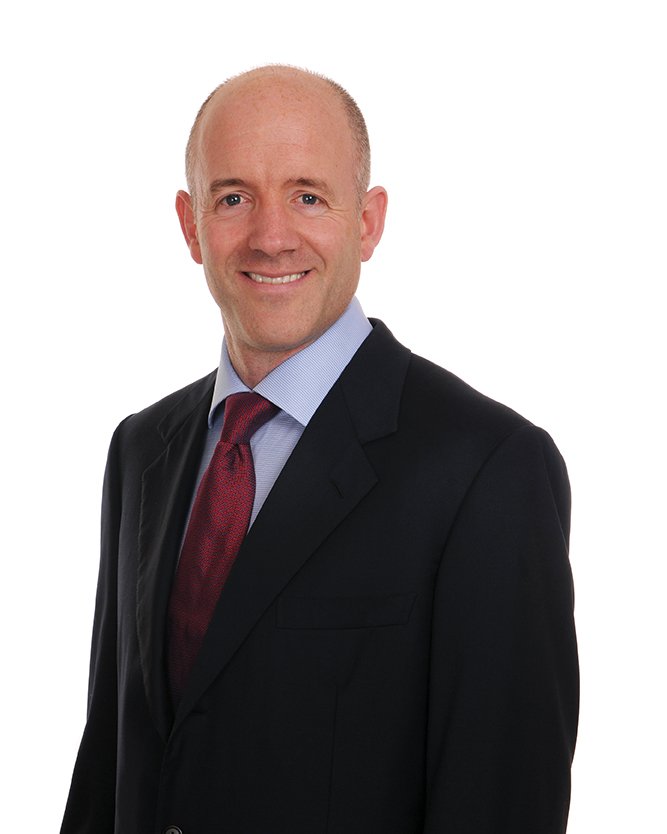
Dr Berry said he had not been in touch with Dr Harty about his experience in the Dáil, but this is something he might do in the coming weeks. Speaking about the health system and the HSE, Dr Berry said “a lot of people I think are tired of this photo-shoot, press release culture to our health service.”
“These press releases are just put out there to give a false impression that something is actually happening. But the [health] policy we come up with has to be informed by what is happening on the ground, rather than waffle.
“I think with my experience, I can bring something to the Joint Oireachtas Committee [on Health].”
People Before Profit want ‘national health service’ — spokesperson
David Lynch
People Before Profit’s (PbP) election manifesto outlines that its overarching health vision is to create a “national health system” that would be publicly-run. Setting out the current situation, the party said: “The Irish health system is dysfunctional. There are long waits for hospital treatment. Social care for the elderly is expensive and difficult to access.”
On the issue of what should be the priority of a new Government, a PbP spokesperson told the Medical Independent (MI): “In terms of patients, a new Minister should immediately address the lack of capacity in the system and the waste on private fees and two-tier access.

“We would initiate an expansion of bed capacity and the staffing to support it. A new Health Act would introduce a national health service in Ireland, providing universal, comprehensive access to a tax-funded service, free at the point of access, democratically planned and sensitive to the needs of the population.
“This is important because capacity is the most urgent deficit in our health service and [eliminating]two-tier access the most important. Public health research shows public systems are the most effective and efficient and private provision the most wasteful, as shown by the US, which costs twice what European public services cost and are rated one of the worst in the OECD for effectiveness.”
What would PbP’s vision mean for doctors? “In terms of doctors, the introduction of a national health service would entail a major recruitment of qualified specialists, GPs and hospital consultants, on a fully public contract and the offering of guaranteed job offers to doctors in training for when they qualify,” the spokesperson told this newspaper.
They added that this measure would help “halt the haemorrhage of doctors to jobs abroad when they qualify. This is important for the reasons outlined above.” When it comes to Sláintecare, the spokesperson said that “the capacity improvement elements of Sláintecare should be accelerated and expanded.
“The exclusion of private and individual fees should also be immediately implemented and expanded.”













Leave a Reply
You must be logged in to post a comment.